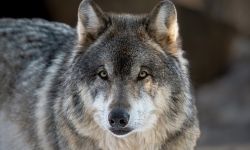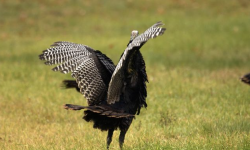Nonprofit buys 31,000 forested acres by Copper Harbor to keep land public
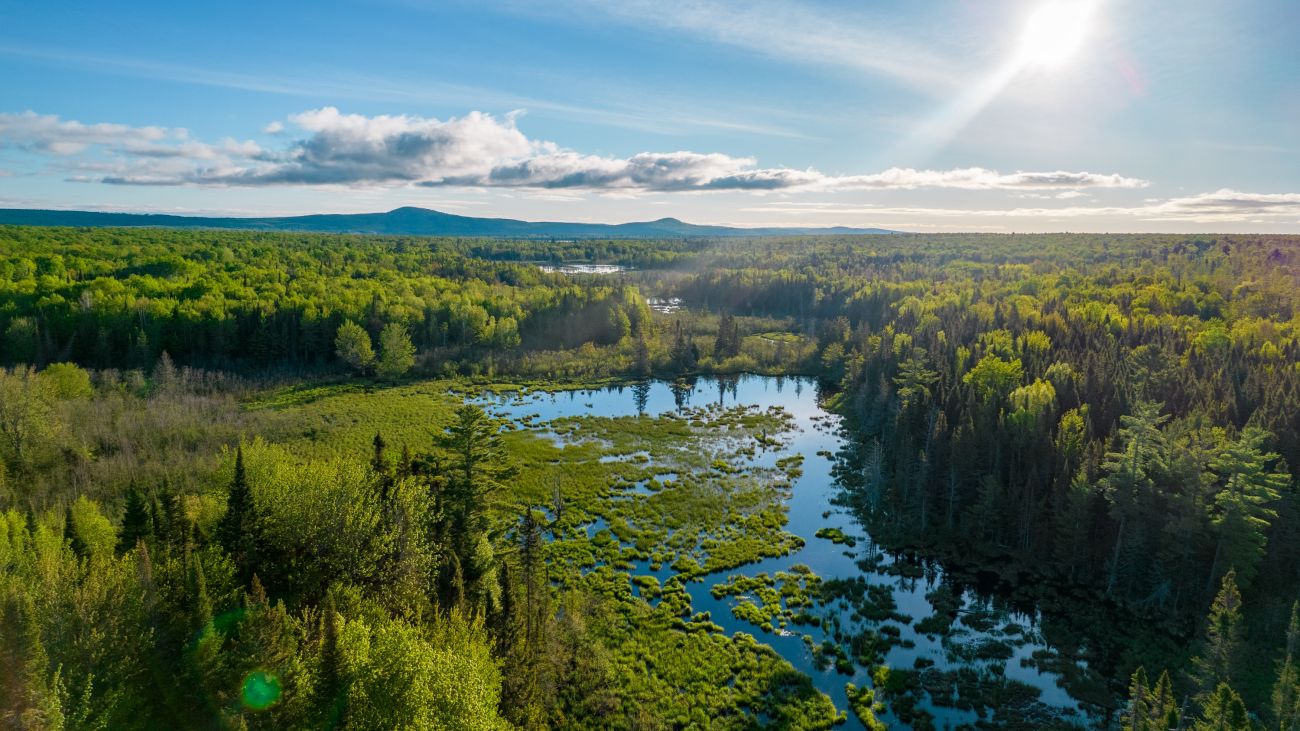

- The Nature Conservancy will buy more than 31,000 acres in the Keweenaw Peninsula, keeping it open to the public
- Locals had feared losing access to the forest land after hedge fund owners put the land up for sale
- The purchase comes as a flourishing outdoor recreation scene fuels change in the Keweenaw
Tens of thousands of acres of beloved Upper Peninsula forest will remain undeveloped and open to the public, after an environmental nonprofit bought the property from its hedge-fund owners.
The Nature Conservancy announced Thursday it had struck a deal to purchase more than 31,000 acres in the forests of Michigan’s Keweenaw Peninsula, spanning from the east to the south and west of Copper Harbor.
It’s the latest large U.P. land transaction by the conservancy, which has spearheaded several high-profile efforts to exclude the region’s wild landscapes from fragmentation and development.
Related stories:
- Land sale threatens public access in the U.P. Should the state step in?
- COVID supercharged Upper Peninsula travel. Looks like it’s going to last.
- In tiny Copper Harbor, a mountain biking boom causes growing pains
- Groups mobilize to protect Upper Peninsula forest lands from mining, logging
The announcement ends more than a year of uncertainty along the northernmost tip of the Upper Peninsula, where a looming land sale stoked fears that bulldozers and no-trespassing signs could soon crop up on undeveloped private timberlands that had long been open to public use.
With intact forests teeming with wildlife and surrounded by Lake Superior, the parcels are among of the conservancy’s highest-priority sites for protecting plants and animals amid a changing climate, said Helen Taylor, state director for The Nature Conservancy in Michigan.
And keeping that land public is crucial to the region’s booming outdoor tourism economy.
“It’s a region of global, state and local significance for both people and nature,” Taylor said Wednesday.
[Disclosure: The Nature Conservancy is a member of Bridge Michigan’s Bridge Builders program, open to businesses and nonprofits that financially support Bridge’s public service journalism. As with stories involving any funder, the conservancy had no role in the reporting or editing of this report.]
‘A really special place’
Those familiar with Michigan’s northernmost county might recognize the lands in question as the breathtaking view to the south and east of Brockway Mountain, the Keweenaw Peninsula's highest point.
But the landscape, built by ancient lava flows and carved by glaciers, is more than pretty.
“It has significance in its own right,” Taylor said. “Historically, culturally, economically — it is a really special place in the world.”
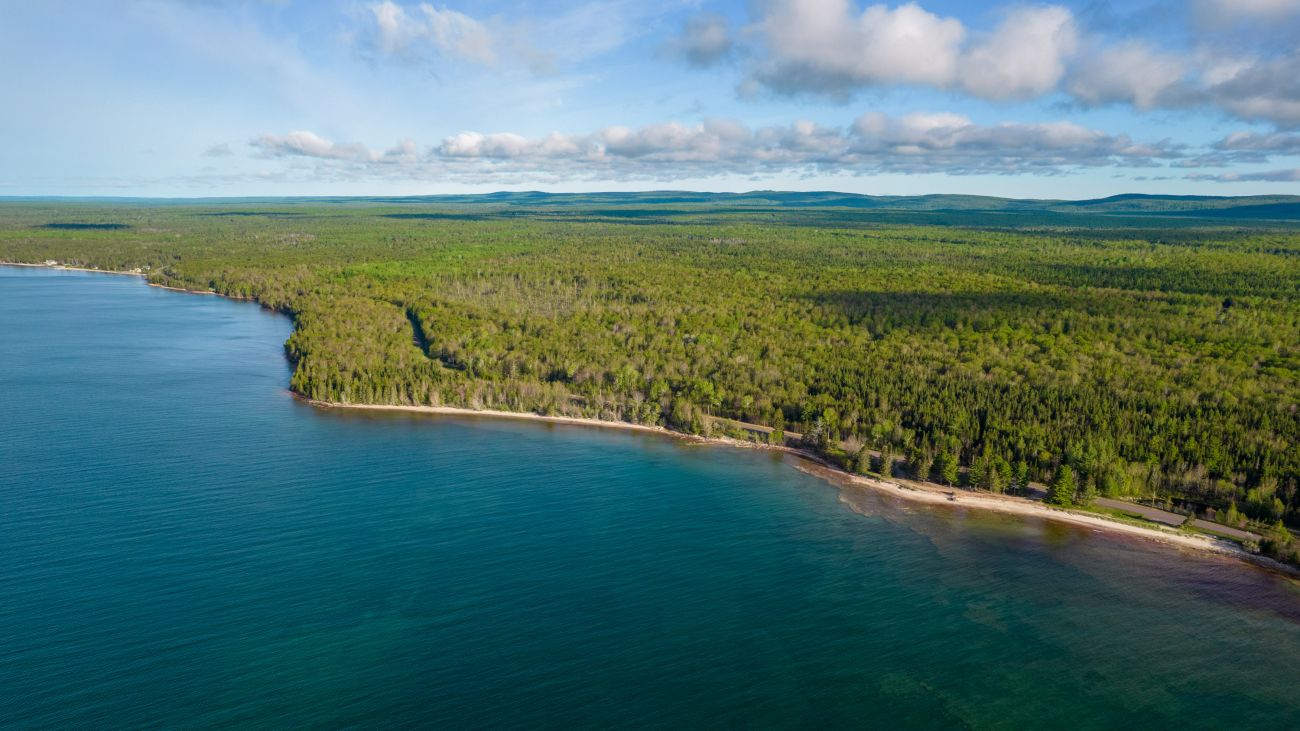
To environmentalists, it’s one of Michigan’s most pristine habitats, where miles of forests, rivers and lakes harbor wolves, bears, martens, salmon and trout, while serving as the last stop for migratory birds before they cross Lake Superior.
To the Keweenaw Bay Indian Community, it’s part of a ceded homeland still important to its members for hunting, fishing, gathering and more.
History buffs prize the copper-rich landscape for some of North America’s earliest examples of metalworking, where ruins of 1800s mining camps also remain hidden in the woods.
And to ATV riders, snowmobilers, hikers, bikers, anglers and hunters, it’s part of a vast outdoor playground that has begun to garner international renown.
“Losing access to these lands would have really hurt,” Keweenaw County Board of Commissioners Chair Don Piche said in a statement Thursday celebrating the sale.
Brigette LaPointe-Dunham, CEO of the Keweenaw Bay Indian Community, also lauded the deal, saying the conservancy spearheaded “a culturally appropriate plan that protects this sacred land so it can be enjoyed and appreciated for the next seven generations.”
Striking a deal
A New York hedge fund called The Rohatyn Group owns more than a third of the county’s landmass, land Rohatyn and its predecessors have generally left open to the public. Longtime residents have spent their lifetimes accessing these woods.
So when the company listed 32,700 acres with a $43.2 million asking price last year, area residents, business owners and government leaders feared a new buyer could abruptly revoke access or parcel off the land for development.
They formed a group called the Keweenaw Outdoor Recreation Coalition, and petitioned the Michigan Department of Natural Resources to buy nearly half of the land. But DNR officials said it wasn’t feasible. So they turned to The Nature Conservancy, a massive land conservation organization with more than a million members worldwide and a history of similar transactions in the U.P.
Gina Nicholas, president of the coalition, called Thursday’s announcement “a big relief,” and said she’s now turning her attention to the details of how the land will be used.
The conservancy said it paid $27.2 million for three tracts totaling 22,700 acres and expects to close on another 8,900 acres by year’s end, making the total amount of land sold in the deal larger in size than Disney World or the city of Grand Rapids.
The remaining roughly 1,100 acres are still under discussion, Taylor said. Money for the transaction comes from an internal loan approved by the organization’s global board of directors. The land will remain on local tax rolls.
In a written statement, The Rohatyn Group CEO Nicholas Rohatyn said the company is “thrilled” with the deal.
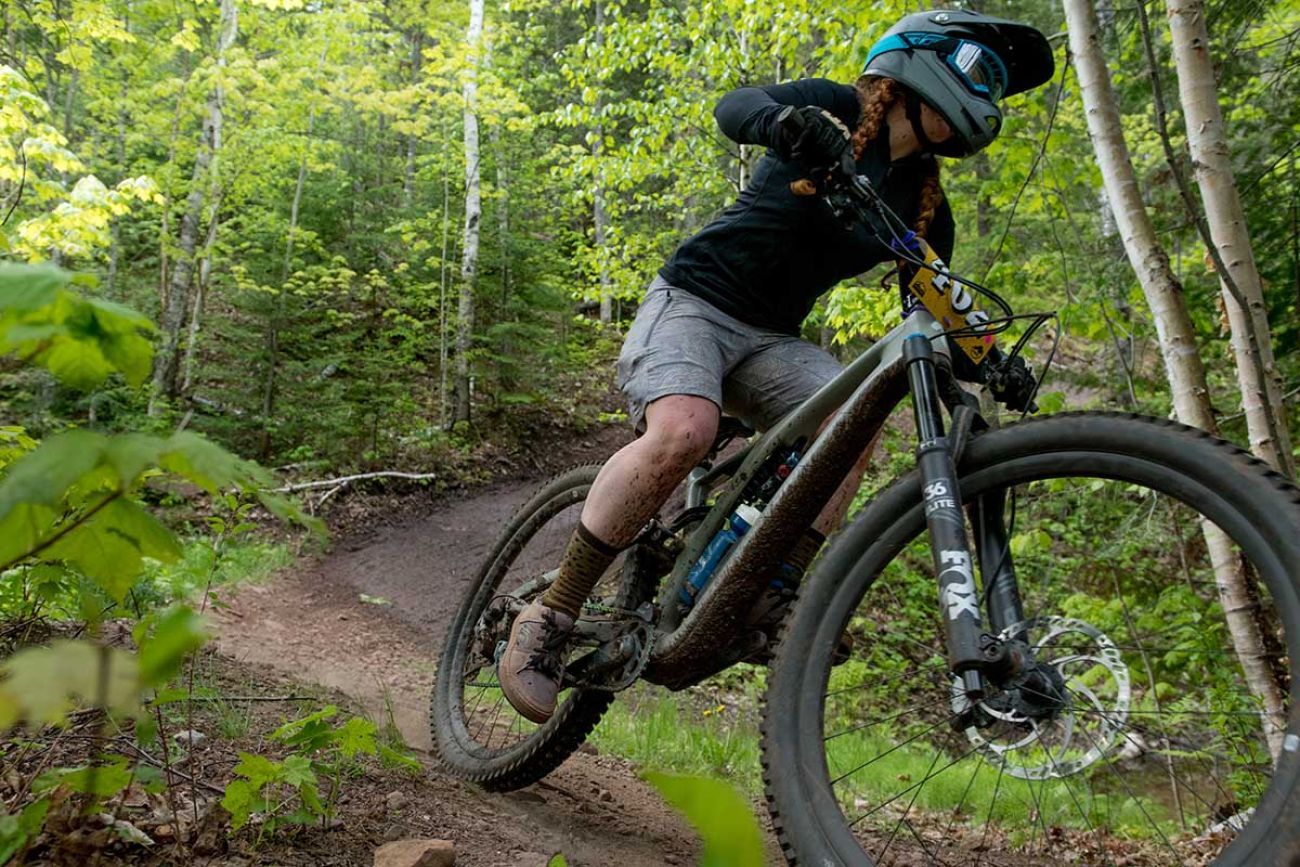
The conservancy was also behind a transaction in the early 2000s that preserved access and limited development on 271,000 privately-owned acres spanning eight U.P. counties. And it played a similar role in the Keweenaw in the late 1990s, buying more than 6,000 acres at the peninsula’s tip from a paper company, then transferring ownership to the state.
As a private entity free from the budgetary constraints and decision-making timelines of government, “we’re able to step in and purchase something when the market is moving,” Taylor said, and hold the land for nature and the public’s benefit until government can catch up.
Such an arrangement is likely for at least part of the newly purchased property near Copper Harbor. The Michigan Department of Natural Resources has requested a grant from the state’s Natural Resources Trust Fund to purchase several thousand acres of the land. That property will be adjacent to Fort Wilkins Historic State Park, said DNR Director Dan Eichinger.
Part of a bigger picture
Eventually, Taylor said, the nonprofit aims to transfer the remainder into state or local public ownership.
“We believe these lands are best stewarded by the community,” she said.
But first, local leaders will complete a planning process for the Keweenaw Peninsula’s future. Land preservation is one of several pressing topics.
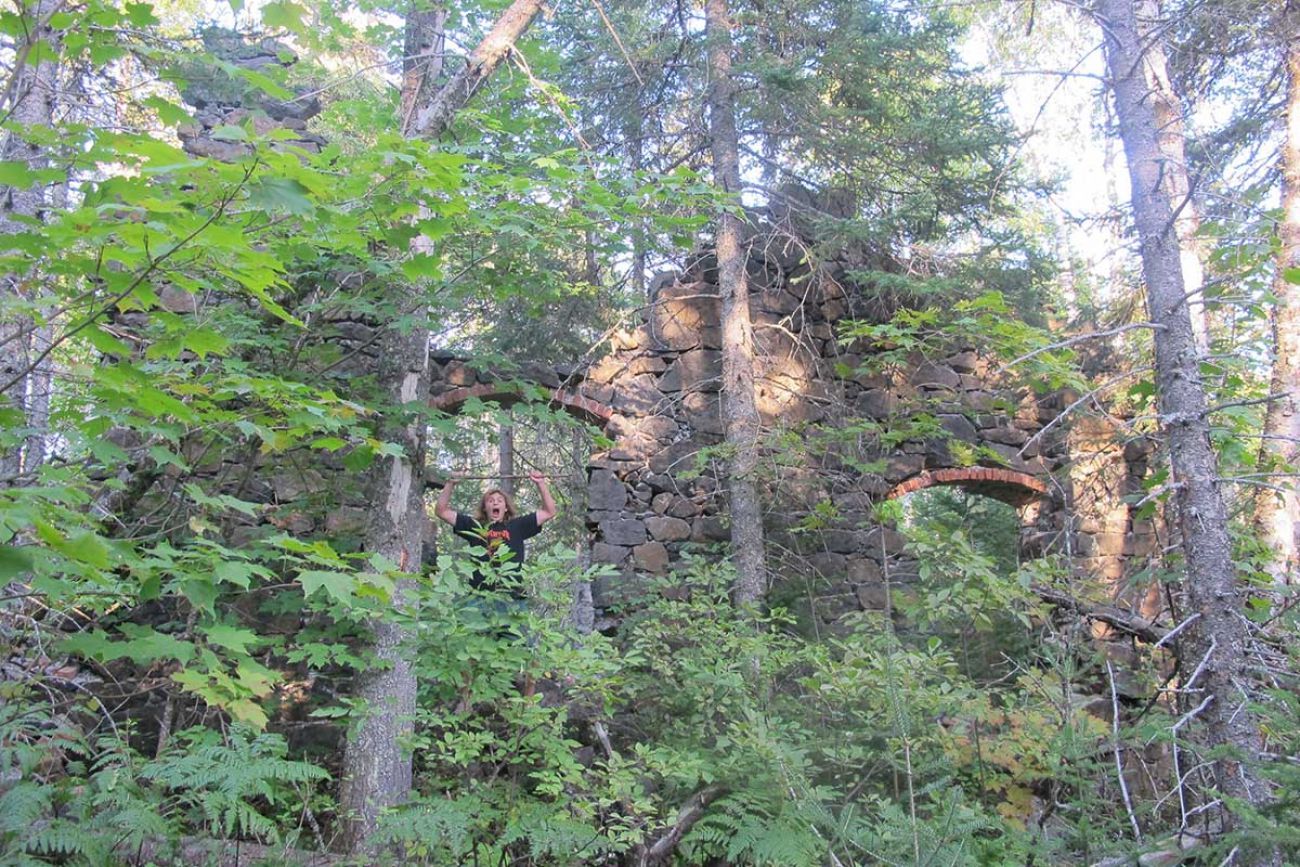
The purchase comes amid rising land values, an affordable housing crunch, and some growing pains as the Keweenaw Peninsula’s popularity grows.
In recent years, more visitors have flocked to the region for its world-class mountain biking trails, extensive ATV and snowmobile trail network, and other outdoor recreation amenities.
In a story common to rural communities that achieve sudden renown, the newfound popularity has brought economic opportunity while straining local resources. Keweenaw County has just 2,100 permanent residents, limited housing and tiny local government budgets, but has welcomed more than 216,000 visitors so far this year.
A local committee will spend months creating a vision for the region’s future amid the ongoing changes. Keeping the lands intact and open to the public, Taylor said, is a major early victory.
“You might say this is a rural economic development project that’s going to achieve a lot of conservation,” she said, “rather than being just a conservation project.”
Nicholas, the coalition president, said there’s talk of carving out a small portion of the land to make room for badly-needed worker housing near Copper Harbor. For the rest, she said, one possible model is a forest owned and managed by local government, with limited logging to fund local services.
“Instead of industrial and now hedge-fund forestry, why don’t we take it back to a community forest where it’s your own?” Nicholas said. “You’re not trying to flip the property for profit in 5-10 years.”
The planning process could offer a template for other U.P. communities as high land values prompt sales that upend longstanding access agreements on private land.
Nearly half of state snowmobile trails are on private land, as are many well-loved spots for hiking, hunting, fishing and outdoor pursuits.
Just this week, the DNR gave notice that the new owners of a ski resort in the far western U.P. will no longer allow snowmobiles or ATVs to cross the property. That creates a gap in a major state trail that connects towns in the area, with no clear options for a re-route.
“These kinds of large projects are going to continue to be the norm,” said Eichinger, the DNR director, requiring cooperation from a host of interest groups to keep lands open.
“I think we've really developed a model here in the Keweenaw that has applicability across the rest of the Upper Peninsula.”
Michigan Environment Watch
Michigan Environment Watch examines how public policy, industry, and other factors interact with the state’s trove of natural resources.
- See full coverage
- Subscribe
- Share tips and questions with Bridge environment reporter Kelly House
Michigan Environment Watch is made possible by generous financial support from:
Our generous Environment Watch underwriters encourage Bridge Michigan readers to also support civic journalism by becoming Bridge members. Please consider joining today.
See what new members are saying about why they donated to Bridge Michigan:
- “In order for this information to be accurate and unbiased it must be underwritten by its readers, not by special interests.” - Larry S.
- “Not many other media sources report on the topics Bridge does.” - Susan B.
- “Your journalism is outstanding and rare these days.” - Mark S.
If you want to ensure the future of nonpartisan, nonprofit Michigan journalism, please become a member today. You, too, will be asked why you donated and maybe we'll feature your quote next time!

